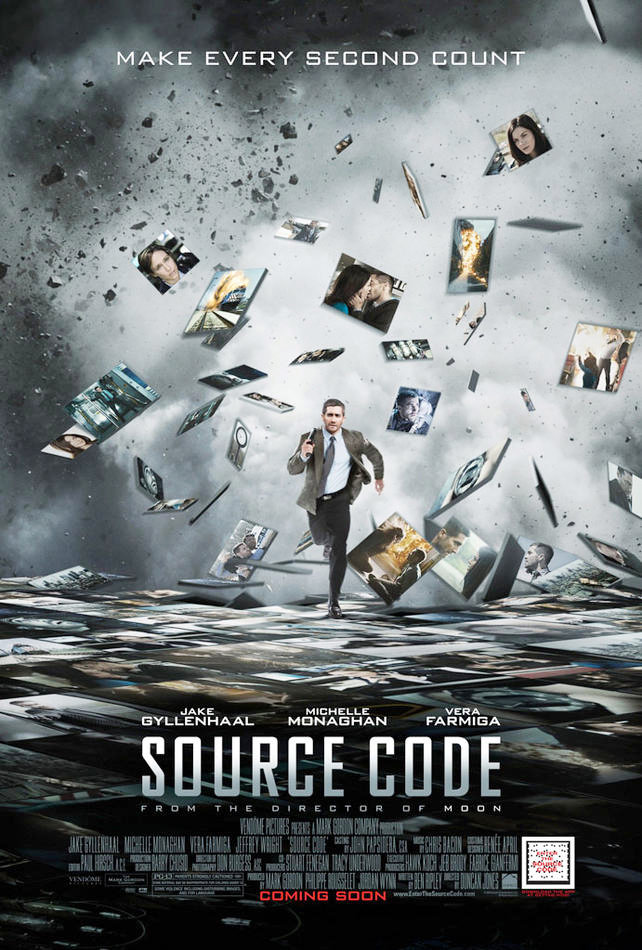Last summer, the world saw the premiere of “Inception,” which set a new standard for the psychological thriller, and essentially revolutionized the entire genre. Since then, we have seen a slew of new psychological thrillers released in mainstream theaters such as “Limitless,” “Unknown,” “Adjustment Bureau” and “Source Code.” All these were released earlier this year, performed decently at the box office and received relatively positive critiques. “Source Code” was the film most recently released.
Film integrates storyline and character development
It is centered on a soldier who wakes up in the body of an unknown man, and discovers he is part of a mission to find the bomber of a Chicago commuter train. The film starts out as any psychological thriller would: with more questions than answers. The audience is introduced to the main character, Colter Stevens (Jake Gyllenhaal), who is about as clueless as the audience. The plot is divided into 1) The plot-driven storyline of Stevens going back in time to try and find a bomb and the bomber on a commuter train, and 2) The character-driven storyline of Stevens trying to discover the answers to his identity. The film does well in pacing both of these storylines simultaneously, weaving them together in a logical and emotionally-charged order.
Science fiction technology adds complexity
The film introduces a new form of technology called the source code, which enables a person to relive the last eight minutes of someone else’s life. Using the code, Stevens becomes a passenger aboard the commuter train, just before its explosion. Producers avoid any scientific explanation by leaving it as “quantum physics and parabolic calculus.” Stevens’ mission is to find the terrorist who planted the bomb, and use that knowledge to help prevent a future attack from said terrorist. However, instead of merely reliving those last few moments, Stevens is thrown into what seems to be an alternate reality. Every time he is sent back again, he finds himself living in an alternate universe –– and this is where the “Groundhog Day” comes into play. In those eight minutes, Stevens has the capacity to change the situation at his will and so he frantically searches a large commuter train to find the bomber. I recall some lyrics from a Madonna song: “We’ve only got four minutes to save the world.” Except that it’s eight.
Film explores relationship between reality and simulation
Mixed into the story are the characters aboard the train. Throughout the movie, the people in charge of the source code –– the ones responsible for sending him back in time –– repeatedly tell him that none of the people on the train are real. They were all killed during the actual event, and the event which Stevens experiences is just a virtual recreation of it. However, Stevens begins to bond with the simulated characters on the train and feel compassion for them. This causes him to stray from his mission of finding the bomber to trying to save the passengers. Also, each simulation ends with the virtual deaths of everyone on the train including Stevens, making the eight-minute mission not only highly stressful, but also physically and emotionally destructive.
Film lacks subtlety in answering its own questions
The story of this film was a well-written, complex plot with some interesting characters that were pretty realistic. It brought up themes of fate versus free will, and the idea of alternate realities. The problem I have with this film, however, is that it makes no attempt to try and make its point with subtlety. With these issues, one could easily see and understand where the filmmakers stood on the issue. The film did well in raising the right questions, but I believe it failed in trying to answer the questions it asked. Like many other high-budget American films, “Source Code” fails because when it approaches these high-stake questions, filmmakers fail to see the shades of gray. Instead, everything is either black or white, good versus evil. And the problem here is that their idea of good is subjective.
Overall, I would say “Source Code” was a well-made film. However, the philosophy behind the film is my biggest beef with it.







